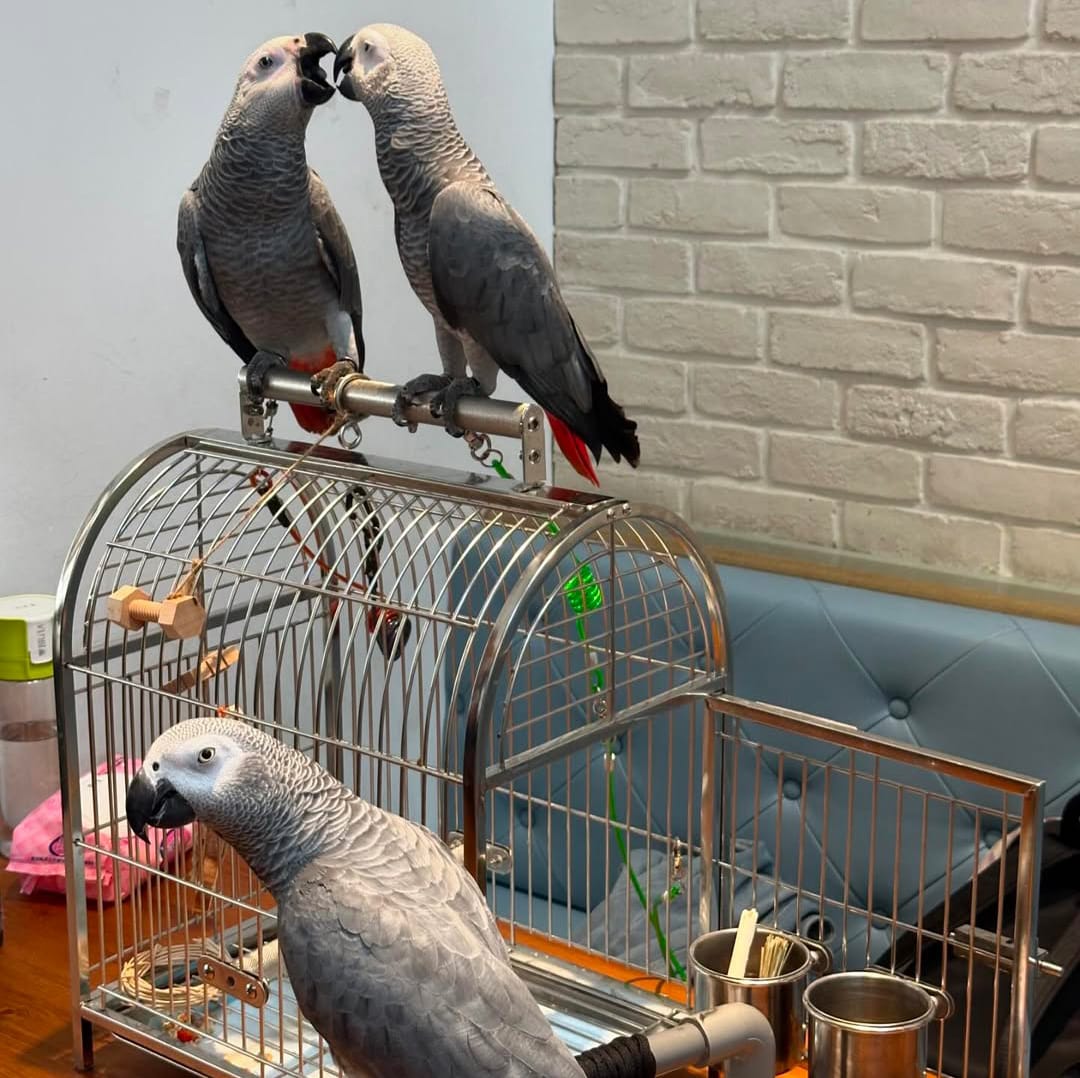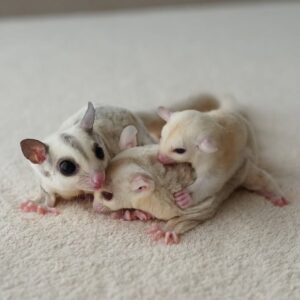Description
Discover the African Grey Parrot: A Brilliant Exotic Companion
The African Grey Parrot (Psittacus erithacus) is one of the most intelligent and captivating birds in the world, making it a highly sought-after exotic pet. Known for their exceptional ability to mimic human speech and their charming personalities, these parrots are a joy to have as companions. However, they require dedicated care, mental stimulation, and a long-term commitment. At ExoticPetsCare.com, we’re here to guide you through everything you need to know about adopting and caring for this remarkable bird.
Introduction to the African Grey Parrot
Native to the rainforests of West and Central Africa, the African Grey Parrot is a medium-sized bird renowned for its intelligence and striking appearance. There are two subspecies: the Congo African Grey (larger with a bright red tail) and the Timneh African Grey (smaller with a darker maroon tail). Both are equally intelligent and make wonderful pets for the right owner. More
Physical Characteristics
These parrots are known for their:
- Size: They typically grow to about 12-14 inches in length and weigh between 400-600 grams.
- Coloration: Their feathers are primarily shades of gray, with a distinctive white mask around the eyes and a bright red or maroon tail.
- Lifespan: With proper care, they can live for 40-60 years, making them a lifelong companion.
Behavior and Temperament
African Grey Parrots are highly intelligent, social, and sensitive birds. They thrive on interaction and mental stimulation, making them ideal for owners who can dedicate time to their care. Key traits include:
- Intelligence: They are considered one of the smartest bird species, capable of learning hundreds of words and phrases.
- Social Nature: They form strong bonds with their owners and enjoy being part of the family.
- Sensitivity: These parrots are emotionally complex and can become stressed or bored if neglected.
Care Requirements
1. Housing
- Cage Size: Provide a large, sturdy cage (at least 36x24x48 inches) with plenty of space for movement and play.
- Toys and Perches: Include a variety of toys, puzzles, and perches to keep your parrot mentally stimulated and physically active.
- Location: Place the cage in a social area of your home where the bird can interact with the family, but avoid direct sunlight and drafts.
2. Diet
- A balanced diet is crucial. Offer a mix of high-quality pellets, fresh fruits, vegetables, and occasional nuts or seeds.
- Avoid foods that are toxic to birds, such as avocado, chocolate, caffeine, and alcohol.
3. Mental Stimulation
- These parrots need constant mental engagement. Provide toys, puzzles, and training sessions to keep their minds active.
- Regular interaction and socialization are essential to prevent boredom and behavioral issues.
4. Exercise
- Allow your parrot out of the cage for several hours daily to stretch their wings and explore in a safe, supervised environment.
5. Grooming
- Regularly trim their nails and beak if necessary, and provide opportunities for bathing or misting to keep their feathers in good condition.
Legal Considerations
Before adopting, check local laws and regulations. Some areas may require permits or have restrictions on owning exotic birds. Additionally, ensure that the parrot is sourced ethically and legally to support conservation efforts.
Why Adopt an African Grey Parrot?
These parrots are extraordinary companions for those who can meet their needs. Their intelligence, ability to mimic speech, and affectionate nature make them a joy to have around. However, they are not low-maintenance pets and require a dedicated owner who can provide the time, attention, and care they deserve.
Interesting Facts
- They are known for their ability to understand and use words in context, not just mimic sounds.
- They have the cognitive abilities of a 4-6-year-old child, making them one of the most intelligent bird species.
- In the wild, they live in flocks and form strong social bonds, which is why they thrive on interaction in captivity.
- They are listed as endangered in some regions due to habitat loss and the illegal pet trade.
Conclusion
Adopting an African Grey Parrot is a rewarding but long-term commitment. These intelligent and sensitive birds require dedicated care, mental stimulation, and a loving environment to thrive. If you’re ready to provide the time and attention they need, this parrot can be a lifelong companion and a source of endless joy.
At ExoticPetsCare.com, we’re here to help you every step of the way. Contact us today to learn more about adopting or to explore other exotic pet options.







Reviews
There are no reviews yet.